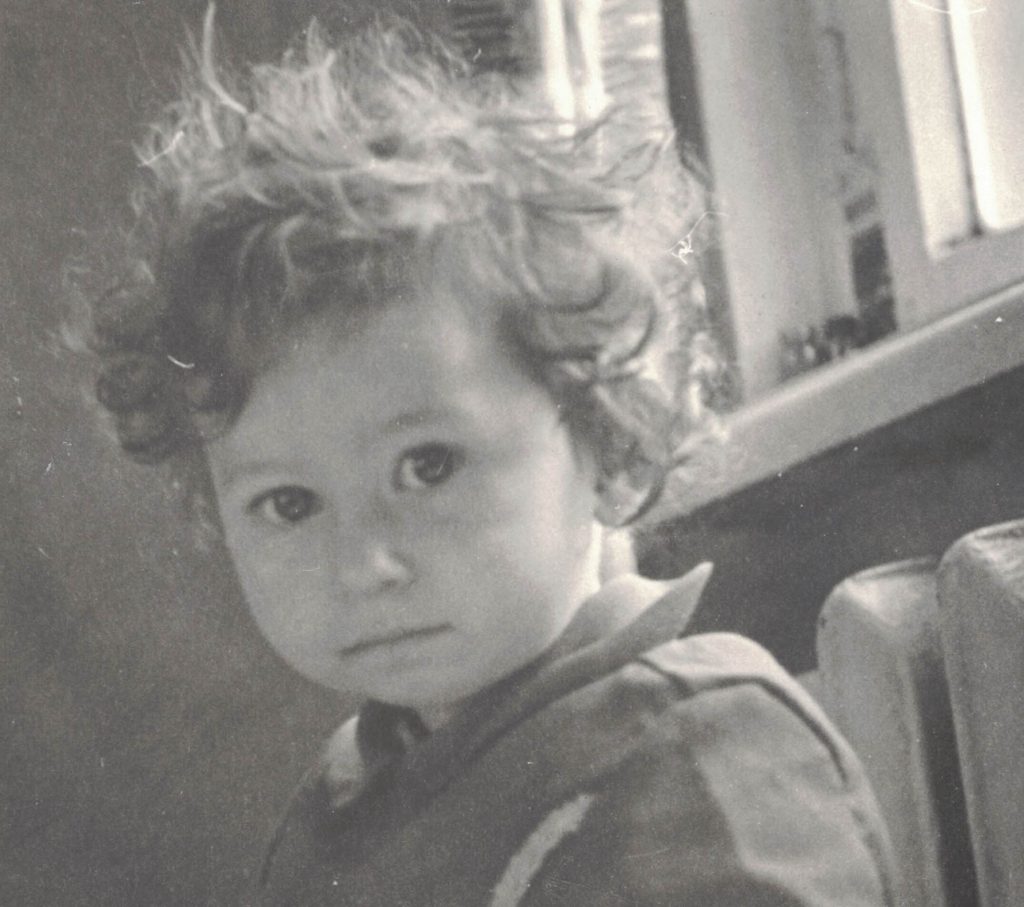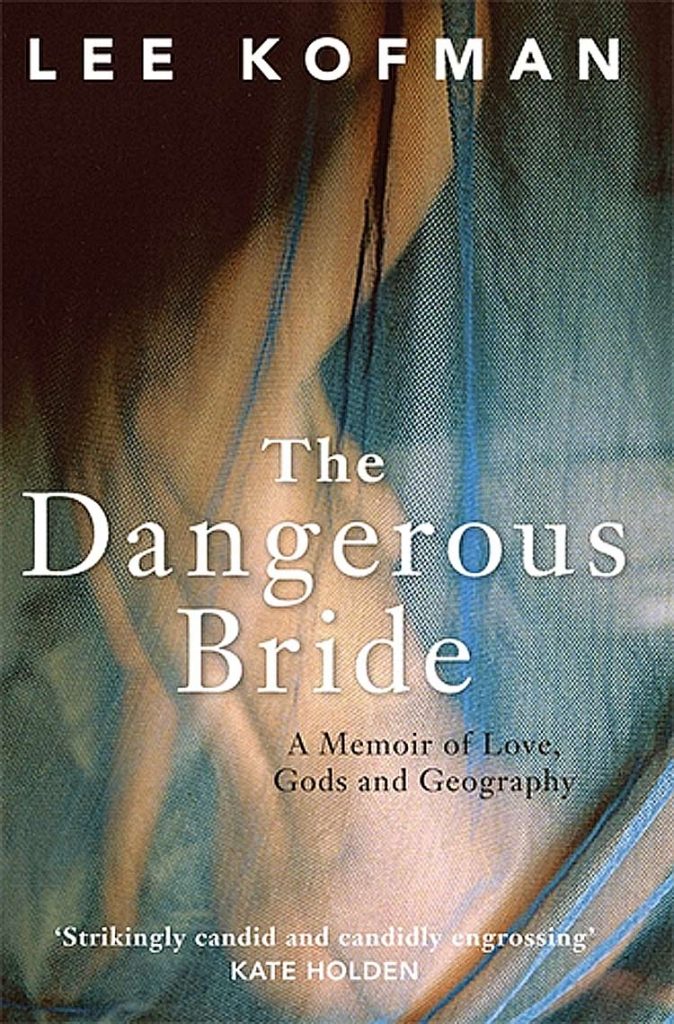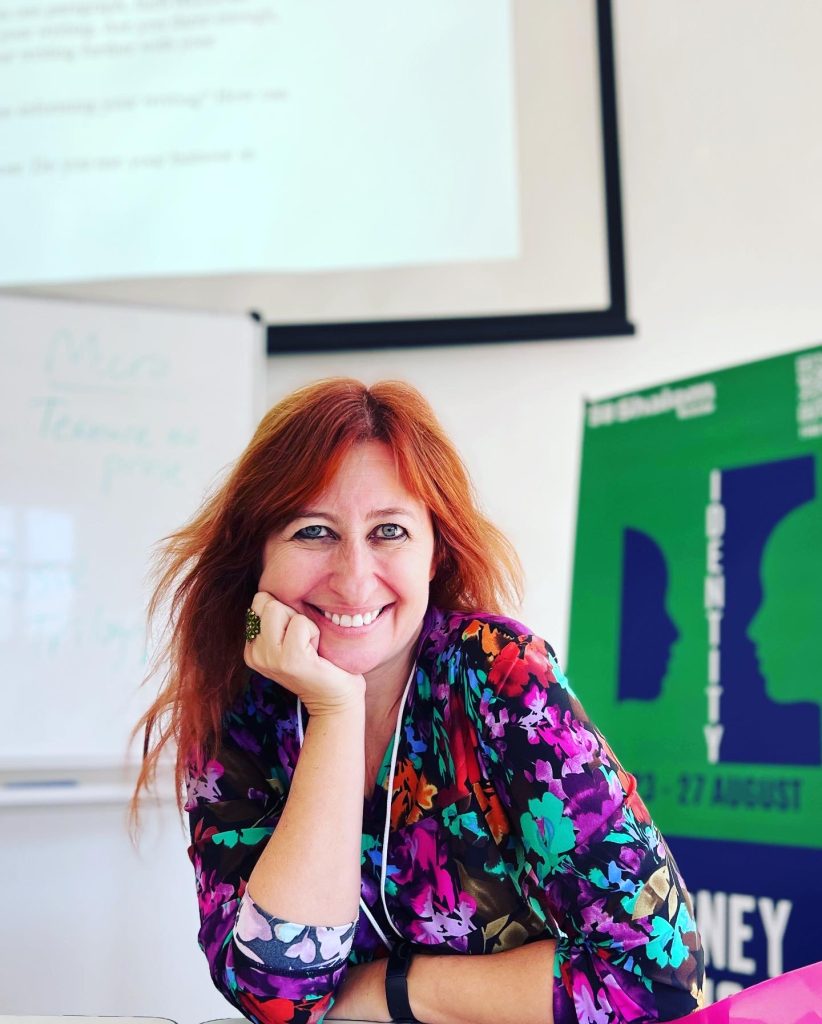A slightly modified version of this post was published in The Jewish Independent
Several years ago, way before October 7 and the ensuing Israel-Hamas war, I was having lunch with colleagues from the writing and publishing universe. We were talking religion when one of them said, laughing, ‘My kids believe in all Gods! And I tell them, I don’t care what you believe in. Allah, Jesus, Buddha…’ He named more divinities, yet someone conspicuous was missing. I had to ask: ‘And what about the Jewish god, isn’t he invited to the party?’
Silence spread around our table until the liberal father gathered his wits and told me he doesn’t like what religious West Bank settlers do to Palestinians. I don’t like it either. I also don’t like Catholics sexually abusing children nor ISIS burning people alive nor other atrocities perpetrated by various godly representatives on earth. Nobody comes out clean if you look into it; yet the only god excluded from that family’s festivities was mine. Which was kind of reflective of how I’ve come to feel amidst the increasing celebrations of diversity in Australia, particularly within my tribe – the literati. The tribe in whose gatherings I’m often the only Jew and always the sole Israeli. To my knowledge, I am the only Israeli-Australian author with some sort of a public profile.
For years I’d thought Australia, where I moved to twenty-five years ago, was my salvation. Not only a political haven, but a Mount Helicon teeming with muses. My first three books were in Hebrew and published in Israel, but in English I developed a stronger writer’s voice. Here I was also exotic enough to stand out. My accented public readings were exotic. My stories were exotic. Some of them were about another part of my twice hyphenated identity – my childhood in the Soviet Union. I felt ambivalent about those works, thinking how risk-free and irrelevant it was to write about Russian antisemitism in Australia where such vile behaviour would not have been tolerated… I miss that naiveté!
Cracks began to appear way before that fated lunch brought to light dark, slimy things I’d been suppressing. Like at a literary event where I remarked to another writer that her Egyptian name reminded me of the Hebrew word for ‘lake’. Her pleasant demeanour changed and she said she wanted nothing to do with Israel. That incident disturbed me more than it possibly should have, as in Israel I often holidayed in the Sinai Peninsula, sharing joints with Egyptian tourists.
It took many more similar incidents, what we now call microaggressions, for my barometer to become attuned to antisemitic undercurrents humming in my tribe’s depths. Like when I met an internationally renowned author, who immediately informed me, unprompted, that he wouldn’t travel to Israel until the occupation ends. Later in conversation it came to light that his political principles didn’t stop him, in a variation of the uninvited Jewish God, visiting countries with questionable regimes, including Russia.
And that was the thing about which I was particularly wrong. Apparently, my salvation was not Australia. It was Russia. My Russian origins.
In the Australian literary world, where Israel is viewed as the epicentre of humanity’s most demonic elements, I present a problem to my peers. I am from Israel but not particularly demonic. I even share their progressive views. The cognitive dissonance is profound, but here is that other part of me that saves the day. Forget gulags, murdered journalists, annexed satellite states. As my books began being published in Australia, the romance of Chekhov and Siberian tigers came to surround me publicly and in private conversations. I remember one time an ABC radio interviewer repeatedly asking about my change of writing languages from Russian to English, even though I stated clearly that my writing life began in Hebrew.
There must be more to this, however, than cognitive dissonance. To allow a writer with a powerful (albeit complicated) connection to Israel to speak about it hasn’t been the thing to do since way before October 7. No matter that I support Palestinian rights and a two-state solution, oppose Netanyahu government and am critical of many of Israel’s policies, still, because I also know how much there is to love about this country and its people, I pose a risk to my tribe’s cozy consensus that everything about Israel is beyond the pale.
The one short story I wrote in English that engages with the Israeli-Palestinian conflict, without demonising either side, was also the story that I found the hardest to find a home for in Australia. It got rejected by most literary magazines (eventually it was published in the Griffith Review, one of the few journals to genuinely foster a diverse conversation).
And although I was only twelve when I left Russia, when the scandal around Elizabeth Gilbert’s novel, The Snow Forest, set in Russia erupted, I was immediately approached by the media to comment. In a striking contrast, on the literary festival circuit where I am the only Israeli, I’ve never been invited to panels where Israel is concerned. Although I’m not a political writer, neither are many other speakers at such panels. I, at least, did my time in a sealed room during the Gulf War and had my windows shattered during a suicide bomber attack… But nobody wants to hear what I have to say about the place where I spent my formative years. I can attend the literary party – where everyone is vigorously encouraged by publishers, funding bodies and peers to ‘go to their roots’ – but just as long as I don’t discuss Israel. So I go, hanging on the edges, feeling this most-loathed emotion of jealousy as I see yet another award offered to ‘foster diverse voices’…
The benefits of ‘ethnic minority’ status rarely apply to any Australian-Jewish writers. Most of us, if we engage with Jewish themes and are not outspoken anti-Zionists, remain on the margins of the throbbing, thriving multicultural party. But there is a difference between my Jewish peers and myself – and it is more than that being an Israeli migrant, I cannot choose whether to ‘pass’ or not.
When Jewish writers engage with ‘Jewishness’, their works most often tell stories from the Holocaust or grapple with its legacy. Such narratives are intrinsic to Australian-Jewish community where so many belong to families of Holocaust survivors. These stories are infinitely important and must keep being told. But Holocaust stories are also less contested. They are the kind of stories that Jews are (mostly) ‘allowed’ to tell about themselves.
Whereas my ‘Jewish stories’ are of the forbidden variety (unless they are about Russian antisemitism…). My Russian-born family wasn’t physically impacted by the Holocaust. My parents were religious refuseniks – Jews whose requests to immigrate to Israel were refused by Soviet authorities – and so my life has always been bound with Israel. Which is ‘unfortunate’ for me, whose creative architecture, both in nonfiction and fiction, is like that of the poet Rachel who famously confessed ‘only about myself I could tell’. So even among Jewish writers I feel like the writer with the most unsafe identity. Occasionally I even feel like the unwanted reminder of ‘the Israel problem’ to some of my Jewish peers. I get it, though. We all have our different injuries to nurse on the page.
My chronic nonbelonging grew so substantial during the 2021 Israel-Gaza conflict, and then when October 7 brought to the boil all the simmering hatreds, that I could no longer walk around it. Fiercely anti-Israel open letters appeared signed by significant numbers of writers and publishing professionals. Certain prominent Australian authors have been getting away with, and even receiving well-publicised peer support for, expressing antisemitic views. Some literary journals now make it a part of their policy to only publish ‘anti-Zionists’. This rules out at least 77 percent of Jews (I’m citing the most conservative estimate, other statistics offer far higher numbers); most of us identify as Zionists at least in the basic sense of this word, as I do, meaning I believe in Israel’s right to exist. So professionally speaking, I no longer know what the future holds for me.
I suppose I could walk my earlier, safer path, keep writing about feminist issues or Russia. But I teach writing and the first thing I tell my students is: write only about what is urgent to you, no matter the risk. As antisemitism’s hydra keeps multiplying its terrible heads, all that burns in me is to explore what it’s like to be a Jew today, and my kind of a Jew – the one who comes from the most demonised country in the world, the only country not invited to the party.



Your words bring tears to my eyes and a heavy heart. Hatred and exclusion, righteousness and racism is the problem wherever it exists. As always in your writing, thank you for your bravery, entering the liminal space, and baring witness.
Thank you, wonderful Shannon! Your words are balm to my heart x
Thank you Lee for sharing this. Nothing infuriates me more than the kind of all or nothing arguments that seem to be denying everyone’s humanity. Stay brave and keep calling them out!
Dear Kerryn, thank you for your support!
This is brave and deeply moving, Lee, full of your bright intelligence. But not surprising to me, given the courage you bring to all your work.
Kris, it’s very meaningful for me to hear this from you. Just for that it was worth publishing this post… Thank you xx
So much love to you, Lee. Wanting to echo other commenters and say the identity silos in political views and lack of nuance and humanity is incredibly frustrating. Thank you for writing and speaking. Always your friend. xx
Dearest Kim, I’m sending you love back. So good to hear from you. Thank you. xx
Thanks for writing this, Lee. As always, your writing is honest and fearless and brave and important.
Karen, thank you for reaching out! Means a lot to me, really.
Thank you for writing this, Lee. Because I try to accept all creeds, colours, and countries equally, I feel ignorant of the challenges facing many minorities. After reading this, I’m keen to hunt down your Griffith Review short story on the Israeli-Palestinian conflict.
Dear Georgina, thank you for your generous response. My story doesn’t really explore the conflict directly, it’s more of a satire meant to reflect the hopelessness I sometimes feel about the situation, and there is a hyperlink to it when I mention it in my post. But I do recommend wholeheartedly to check Michael Gawenda’s substack for some excellent insights (from a left-wing perspective), just here: https://michaelgawenda.substack.com/
This needed saying Lee. Thank you for being the brave one who says it.
Sandra, thank you! And I needed you to say what you did… Really appreciate this.
I love that you wrote this Lee. You are the most beautiful life writer. As sad as it was to read this, your voice is so strong – and you’ve helped so many here find their voices. The photo of the little girl in Siberia – those big insightful eyes – we’re so lucky you moved here.
Thank you, my beautiful friend! I’ve missed you xx
Lee, as an Australian-Israeli writer, I completely identify with your situation, so beautifully expressed. I encountered this blind ‘progressive’ anti -Israeli sentiment at last year’s Adelaide Writers’ Festival, well before the terrible incidents on and after October 7. As someone who lived for over 45 years in Israel, loved the country but had always been opposed to the government’s policies regarding the West Bank, I was prepared to listen to people presenting the Palestinian case in what I hoped was in a civilised, thoughtful manner. I came away angered by the ease with which Israel (not yet ‘the Jews’) was being targeted and smeared, by the unwillingness to understand the long history and complexity of the region, and by the lack of nuance in the presentations. I felt the whole operation was carefully orchestrated to manipulate fellow-sympathisers and gullible ‘progressives’ to follow their cause. For me, as it was for many others, it was a wake-up call, heralding what I suspected would be an ever-increasing wave of hatred of Israel, followed by legitimised anti-Semitism in general.
I too, find it difficult to deal with this, both on a personal level and as a writer. I don’t know through what lenses my name and my writing are now perceived. I self-published my crime novel which is set in Israel, rather than have it rejected for the wrong reasons. I no longer send work to literary publications outside Israel. I’m tired of polite rejections on the grounds that though well-written, my recent pieces don’t fit their magazine’s ethos. It may or may not be true, but there’s always a lurking suspicion in the back of my mind. In the 1930s my Viennese father received many such polite rejection letters when looking for work after he graduated as a civil engineer in Leipzig – as well as others that were often vehemently anti-Semitic.
I feel as though I’m in a black cloud barbed with arrow heads.
Thank you for sharing this, dear Lilian. What you have to say is sad,and needs to be said…
Your articulate honesty and immediacy are, as always, to be admired, Lee. The gods we believe in, whatever gods they may be, value us equally. It’s only people who don’t.
thank you! I needed to hear this.
Dearest Lee
I did read this a while back – the version published in The Jewish Independent. I wanted to reply then but life got in the way so v. happy you’ve re-shared a version.
While there will always be people who want life to be a palatable black, white, good. bad, it’s disheartening to read it extends to those I would have thought to have been more curious and open minded. It’s one thing to be critical of a government; quite another to dismiss a whole country (and its people) because of its government’s actions.
I dearly hope you’re writing an expanded version of what you have here. Goodness knows, we need it!
With my love and support
Rachel
Rachel, thank you for your wisdom and support, as always! X
Lee, I read the Suicide-Bomber Barbie Doll. It is a triumph – this disturbing character who slides so easily on the surface of events and abandons the complexity of those crumbling streets. It is indeed a time of thoughtless and cowardly alliances.
Dearest Carol, thank you for reading my story and for your wise words. Love to you!
Thank you for your courage in speaking out.
You have done a clear job of highlighting assumptions people make … “No matter that I support Palestinian rights and a two-state solution, oppose Netanyahu government and am critical of many of Israel’s policies, still, because I also know how much there is to love about this country and its people, I pose a risk to my tribe’s cozy consensus that everything about Israel is beyond the pale.” It’s like someone not wanting to hear from any Australian because they disagree with our government’s treatment of refugees or dismissing all Americans because Trump got back in.
You have a powerful voice, Lee. I only hope people listen.
Dearest Andrea, thank you so much for your support! This means more than you know.
So many can’t see the forest for the trees, which is surprising when it applies to writers and editors. Go Griffith Review and continue on your brave path, Lee! You are not alone.
Thank you, dear Anne, I needed to hear this today!
Lee, I have just read this. Your newsletter goes to my junk box and I find an issue every so often. I missed this, and have only found it now that I am sleepless and browsing your past newsletters. What you say is not only profound and painful but painfully important. Your nuanced and brave explanation of the nightmare you find yourself in extends beyond the personal. It is indeed an example of the personal being the political. There are many voices denouncing Israel…and thus all Jews. But no!—not ‘thus all Jews’. As you say, it’s like denouncing all Americans just because of Trump – ignoring the millions who disagree with him. I’ve known Jewish friends of various persuasions: religious, non-religious, vehemently pro-Israel, anti-Israel’s government.
You must continue being brave, as you exhort us writers to be brave in our honesty. You are a writer of passion, a writer who writes with passion, a writer who feels passionately. And you are a woman with a family, and you and your community are under attack. My imagination is limited as to how this might be affecting you, but from the little I know you, I feel certain you are terrified in the midst of an incomprehensible, shocking and surprising nightmare. May it end soon—for all those in this terrible war involving Israel, Gaza, the Left Bank—and for those in supposedly peaceful countries who are vilified for nothing but their ethnicity and their connection to the country where they spent their formative years.
Dearest Anna, it was very meaningful to find your comment in my inbox this morning. Thank you for your moral clarity and for your ongoing support of me that has made a big difference this last year. I am sending you love.